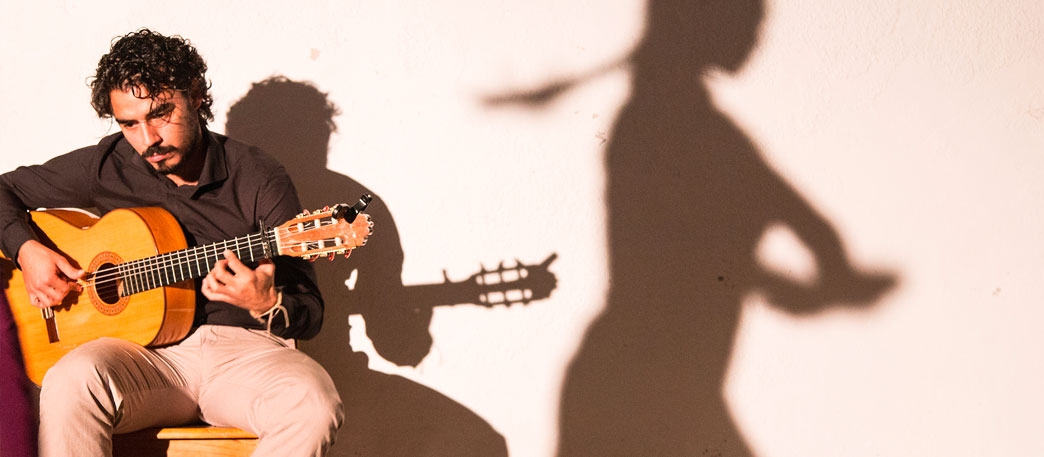Knowing the soul of a people
Flamenco is music, song, dance, poetry, feeling… and a whole philosophy of life. Discover the authentic meanings that this incomparable demonstration of popular art can reach.
The origins
Flamenco is surely the purest expression of Andalusian folklore. It is said that its origins are related to the arrival of the gypsies in the 15th century to the Cadiz countryside of Jerez and Seville. In the middle of the 19th century it became popular through the singing cafés.
The first of these cafés cantantes opened in Seville around 1885, later spreading throughout Andalusia and Madrid. Until then, flamenco had not left family gatherings or private parties.

The deepest Seville
In Seville you can enjoy the daily performance of this art in all its splendor in the well-known flamenco tablaos -direct heirs of the old singing cafes-, in the peñas of the neighborhoods, in thematic spaces, in certain bars and, of course, in festivals such as the Biennial.
Inescapable spaces and moments
Due to its enormous importance, the Bienal Flamenco, held in the city every two years (in even years) and attended by the top figures of flamenco singing and dancing, stands out.
–
This incomparable meeting has been running for more than twenty years, and is an exceptional appointment to project the value of Flamenco to the rest of the world, an art that has already been declared by UNESCO as Intangible Cultural Heritage of Humanity.
–
And as for its moving facet, you can discover its magic by visiting the Museum of Flamenco Dance.
01_
A statue pays tribute in the Altozano de Triana to the three sides of the flamenco world.
02_
There are many academies that teach this art to visitors and Sevillians.
03_
Flamenco is also known as «cante jondo» (deep singing).
04_
In its history there are great figures such as Manolo Caracol or La Niña de los Peines.


